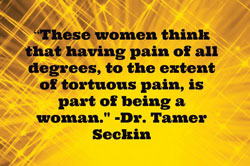While it seems that Hollywood has run out of ideas by the amount of remakes and sequels being released, the reasons why this occurs remains something of a mystery. One theory is that these recycled ideas and storylines internalize the fear of taking a risk on something with an unsure future.
Movies such as The Karate Kid, Arthur, and Footloose were all highly successful films when originally released. Because of this, big budget studios seem to have concluded that if it was successful once, it will be successful again.
Dr. Chad Dell, Chair of the Department of Communication, sees Hollywood remakes particularly as a business decision. “We’ve got remakes of 70’s and 80’s films that still have currency with today’s audiences. The studios see something that was a blockbuster in its time, so it already has that bankability,” said Dell.
Dell then explained that for studios, it seems easier to risk a certain amount of money on something that has already proven its success rather than something with an uncertain future.
Professor Robert Scott, professor of radio/television, also believes the need for film remakes are financial considerations. “It is typically easier to greenlight a project if the financial risk can be minimized,” said Scott. “By pitching a project with a proven track record, name recognition, and perhaps even iconic status, producers may feel they have a better chance of a strong return on their investment.”
Professor Aaron Furgason, professor of radio/television, sees remakes not only as a business related decision but also as way of tapping into an already established fan base. “Remakes are safe,” said Furgason. “Last American Virgin, for example. It was influenced as being this interesting teen film and now it’s being presented to a new teen audience. The original Footloose was a huge hit. So if it was a hit to that teen audience, why wouldn’t it be a hit to the next teen audience?”
While now it may appear that Hollywood is making films only so that they can be sure that money will be made, the subject of the economy comes into play.
Paul Hernandez, a former owner and producer for Crossbar Entertainment, admits that the business is not as successful as it had once been. “Three or four years ago when the economy crashed, look at how many remakes were made in the last four or five years. The whole industry changed,” said Hernandez. “I was still in the industry at the time and people who had been in the industry for 15 to 25 years couldn’t get work anymore unless you were tied to a big studio. Studios took a look at what was being made and realized that they weren’t willing to take a chance anymore. So they started going for safe projects, and remakes are safe.”
According to Scott, the film industry is facing challenges from new competition such as online video content where viewers choose subscription services over theater experiences as well as the recent economic recession.
“These factors are impacting film production, distribution, and exhibition. Hollywood studios are struggling to regain their footing while still attempting to produce entertaining content for their audiences,” said Scott.
Despite the new competition and economic situation of the nation, however, Hollywood studios do have the potential to make a good deal of money on some of the movies they make.
“The film industry is a high-risk high-reward industry. Hollywood probably loses money on seven or eight out of the 10 films they release, but they make spectacular money on the other two or three which is why they can sustain this business,” said Dell. “Oftentimes, the spectacular money they make is on those quick strike Harry Potter or Batman movies while other films may not do as well.”
According to Furgason, another factor as to why remakes and sequels are being released instead of original content is because of audience preference.
“The sad part of the film industry is that sequels and remakes almost endlessly do better than original content,” said Furgason. “People work all week and are exhausted, do they want to see something they don’t have to think about with explosions, special effects, and a ridiculous storyline, or do they want to watch this really dramatic film of these guys in a life and death situation trying to take bombs and make them safe (Hurt Locker). People are going to more than likely go see Footloose or G.I. Joe 2.”
Despite winning an Oscar, Hurt Locker made $17,017,811 at the box office while its production budget was $15 million, according to boxofficemojo. com. The Hunger Games, a film franchise based off the novels by Suzanne Collins, has made $338 million at the box office as of April 15 while it had a production budget of $78 million, according to boxofficemojo. com.
Due to the recognition of audience preference, original works seem to take the backburner in favor of continuing a franchise.
“Some sequels have proven highly successful financially, despite their mass criticism. Two recent examples that spring to mind are the Hangover and Harold & Kumar series. The studios looked at the box office, international, and ancillary numbers and forged ahead knowing that both are relatively inexpensive to produce and are highly likely to continue generating revenue,” said Scott.
Although the number of remakes being made and the amount of money audiences are helping to make these films make cannot be doubted, not all moviegoers are pleased with Hollywood’s safe route to making money.
Philip Blizzard, University student, believes that remakes are unnecessary. “There are some things that don’t need to be remade because they got them right the first time. Look at Psycho. Alfred Hitchcock’s original was brilliant. The new one was a shot-for-shot remake and that was the problem. You have to be true to the original but at the same time, you’ve got to change it in a way to make it your own but still keep it faithful enough so people can tell where it came from,” said Blizzard.
Ashley Szarek, University student, believes that not all remakes are a bad thing. “They can give a new look to an old film and put a new perspective on it,” said Szarek. “It can also build on the original such as older films with tings they couldn’t address back in past generations with things that were taboo. You can address these things and give it a new perspective and add sophistication to something that you may have had to gloss over back then.”
While there has been much criticism on Hollywood’s safe decision to continue to recycle films and ideas, the overall quality of film has not been gravely affected although some may express disappointment in the larger studios’ unwillingness to take risks.
“The quality of films is both really good and really bad at same time. Good, because film makers are pushing envelope with special effects which allows creative storytellers to tell interesting stories. But I think the state of the industry is kind of sad because they are relying way too much on retreads of previous ideas, franchises and sequels and remakes of previous films,” said Dell.
However, when the concept of successful original films is brought up, such as Little Miss Sunshine, Juno, Blue Valentine, or The King’s Speech, Hernandez suspects an unfortunate miscommunication.
“I think there’s a huge disconnect between studios being run by people who don’t really know how to make films. They’re run by lawyers and corporations and to them; they’re not looked at from a creative standpoint. But they will buy it once it has been made. To come up with their own however, I think they could, I don’t know why they haven’t,” said Hernandez.
According to Furgason, regardless of the artistic clashes between movie makers, goers, and investors, it is not difficult to get an audience to sit through a movie.
“Audiences want some type of story. We want something we can latch onto but we also want massive incredible special effects. We as an audience all want different things, but so long as the special effects and the music and everything else is interesting, we will sit through it,” said Furgason.



